Epic Games released a statement on Aug. 13, announcing a permanent price reduction of 20 percent off all V-Bucks purchases and real-money offers when using select payment methods.
In addition to a free pickaxe that was gifted to players to celebrate the occasion, Epic’s new way of reducing the price for mobile users caught the attention of fans, Apple, and Google. With the patch, the developer implemented a system named “Epic direct payment,” which allowed players to directly pay Epic, bypassing Google and Apple in the process.
Apple and Google are known for their notorious 30-percent fees for every in-app purchase, leading developers to increase their mobile prices more than what they are on PC and consoles.
While the announcement called for a celebration within the Fortnite community, the events that unfolded later cast a shadow on what looked to be a historic day in the game’s history. Here’s a timeline of the events that transpired.
1) Epic Games announces the Mega Drop event

On Aug. 13 at 9am CT, Epic dropped a blog post, showcasing the price drop and explaining that it was always looking for new opportunities to “bring value to Fortnite.”
This was the first time that Epic initiated a price drop since the game’s release and the developer seemingly took every measure to do right by the community during the process. These measures included gifting additional V-Bucks to everyone who made a V-Buck purchase over the last month and not changing the rate that Support-A-Creator program members make.
2) Apple removes Fortnite from the App Store
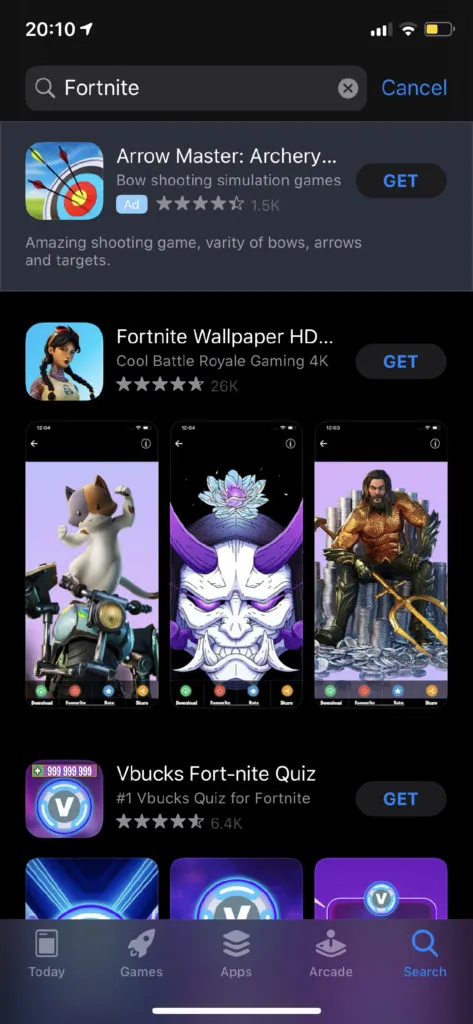
Shortly after Epic’s initial statement, Apple retaliated by completely removing Fortnite from its App Store, making it impossible for players to download the game. This measure didn’t prevent the players who already had the game installed from playing, however. But players who searched for Fortnite in the App Store were greeted with third-party applications that featured wallpapers.
Apple later gave a statement to The Verge, explaining that what Epic was doing was against the company’s Terms of Service (ToS). “The fact that their business interests now lead them to push for a special arrangement does not change the fact that these guidelines create a level playing field for all developers and make the store safe for all users,” Apple said.
Apple also mentioned that Epic would need to remove its new payment method from the game to be featured in the App Store once again.
3) Epic fights back against Apple with 1984 commercial and lawsuit
Almost two hours after Fortnite’s removal from the App Store, Epic announced an in-game event, premiering a new short film, Nineteen Eighty-Fortnite, at the Big Screen. This short film was inspired by Apple’s own commercial that aired in 1984.
The original commercial featured people being brainwashed by a propaganda video on a screen before a woman swings a hammer at it to free everyone. The commercial ends with text reading, “On Jan. 24, Apple Computer will introduce Macintosh. And you’ll see why 1984 won’t be like 1984.”
Epic’s version of the commercial features Brite Bomber as the protagonist who saves the day and a half-eaten apple with a worm on it on the main screen. “Epic Games has defied the App Store monopoly,” the statement reads. “In retaliation, Apple is blocking Fortnite from a billion devices. Join the fight to stop 2020 from becoming 1984.” Epic’s version of the commercial ends with #FreeFortnite, which trended on Twitter shortly after the developer posted the video on its social media accounts.
Epic also filed a legal complaint in the Northern District of California for injunctive relief. The antitrust lawsuit will be a hot topic in the gaming world until it gets resolved.
4) Google removes Fortnite from the Play Store
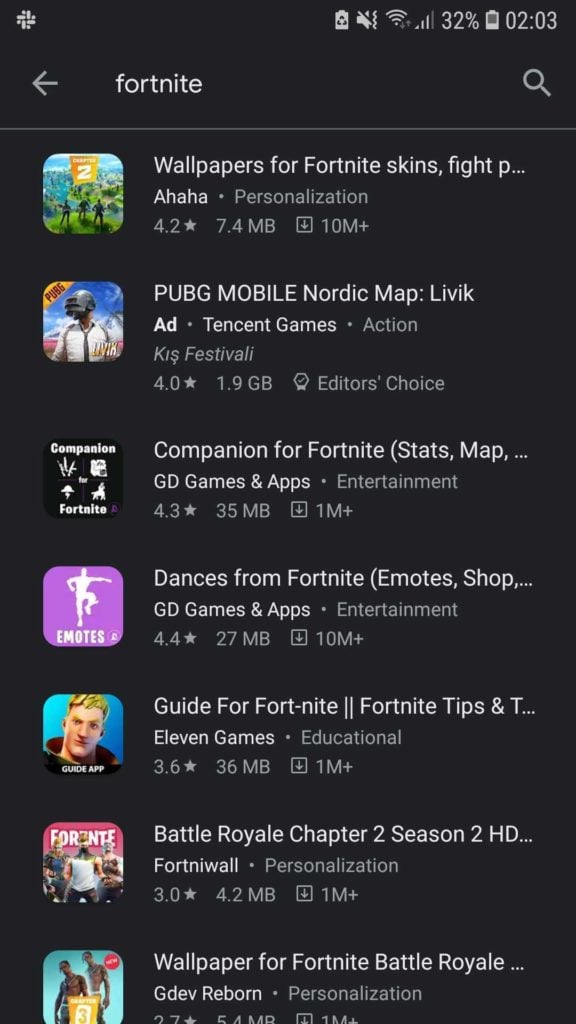
Somewhat late to the party, Google also removed Fortnite from the Play Store two hours after #FreeFortnite started trending on social media.
Google told The Verge the introduction of a way to bypass its payment system also violated its ToS. “The open Android ecosystem lets developers distribute apps through multiple app stores,” Google said. “For game developers who choose to use the Play Store, we have consistent policies that are fair to developers and keep the store safe for users. While Fortnite remains available on Android, we can no longer make it available on Play because it violates our policies. However, we welcome the opportunity to continue our discussions with Epic and bring Fortnite back to Google Play.”
Android’s open ecosystem makes things easier for Fortnite fans, though, since the game will still be available to download via other stores, like Samsung’s Galaxy and the Epic Games app.
5) Apple set to terminate all developer accounts of Epic Games
Four days after removing Fortnite from its App Store, Apple said it’s set to revoke Epic’s developer access on Aug. 28. This means the developer will be unable to use the necessary dev tools on both iOS and Mac for testing and debugging purposes.
Epic filed a court request in retaliation and asked the court to not allow Apple’s actions. If the court chooses not to interfere, the harm Epic will suffer is immense, considering an Apple developer account is the heart of developing anything on both iOS and Mac.
Epic also requires access to these tools to update the game. The existing players on Apple platforms are at risk of not receiving any future updates until the situation is resolved. This means that the players may not be able to play the game at all unless Epic dedicated un-updated servers for their usage. And even if it does that, players could lose the cross-platform feature of the game.
This hurts the development process of Unreal Engine, a real-time 3D creation platform that’s being developed by Epic. Without a court ruling, Apple’s set to move with its decision on Aug. 28, putting every party involved on a timer.
6) Fortnite organizes an event regarding the feud with Apple
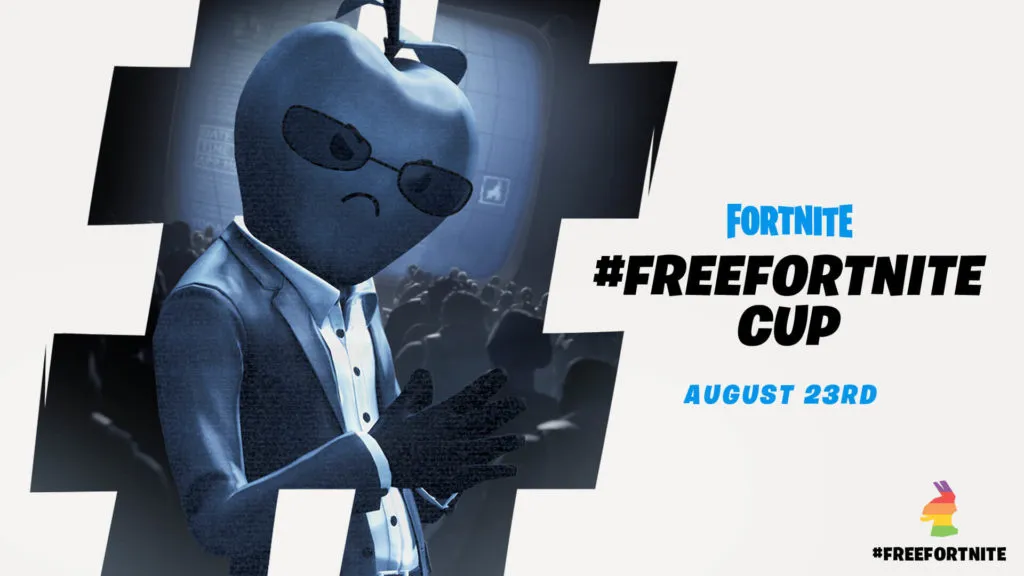
Apple’s decision to terminate Epic’s developer accounts that were essential to keep the game updated means that iOS users will soon lose their access to the latest version of the game. Since Epic is getting ready to wrap up Chapter Two, season three, gamers on Apple devices won’t be able to play in-game tournaments due to being stuck on an older version of Fortnite.
But as a way to protest against Apple and give the fans a memorable experience, Epic announced that it’s organizing a special event “#FreeFortnite,” featuring exclusive rewards for all attending players.
Kicking off on Aug. 23, the event will last for four hours. There will be hardware prices up for grabs in addition to in-game and IRL outfits. Some of these include Android devices like Samsung Galaxy Tab S7, OnePlus 8, and other platforms that Fortnite is available on, such as the PlayStation 4 Pro, Xbox One X, Nintendo Switch.
The announcement of the tournament reminds iOS players that there are many other platforms to play Fortnite on and Epic thanked them for their support so far. Though it’s hard to say if the game’s mobile fans will be willing to switch devices for the game, Epic could have strong leverage against Apple if players decide to jump ship.
7) Apple accuses Epic CEO Tim Sweeney of a special treatment request
On Aug. 21, Apple responded to many claims regarding its recent feud vs. Epic in a report by CNBC. One of the report’s main takeaways was Apple’s claims of Epic violating the App Store’s policies. Documents included in the filing featured three emails from Epic’s CEO Tim Sweeney asking whether Apple would be interested in coming to an agreement for Epic’s new payment system, practically asking for a special deal to be made.
Shortly after Apple’s claims, Tim Sweeney came forward on Twitter, saying the company’s statement was misleading.
Sweeney shared what looks to be the original copies of the emails in question. The emails he posted were clarifying Epic’s actions and demanding similar rights for all the other iOS developers. The messages also give the impression that Epic’s direct request of contacting Apple was transferred to the company’s legal team, which was slightly offending to Epic.
8) Microsoft chimes into the discussion with an official declaration
Two days after Apple’s response to CNBC, Microsoft came forward with an official declaration regarding Apple’s decision to terminate all of Epic’s developer accounts for iOS and macOS platforms.
The three-page declaration mentions that not only would Epic losing its access to Apple’s Software Development Kit (SDK) hurt other game developers, but it would be equally damaging to other game developers and existing games.
Since Epic also develops and supports Unreal Engine, a powerful real-time 3D creation platform that’s available on multiple platforms, it would slowly become obsolete on Apple devices due to the developer not being able to take care of it. Games using the platform would either need to relaunch their game on a completely different engine, meaning they would need to re-code it, or abandon gamers on Apple devices. Both options are highly unfeasible in terms of economics and are horrifying for gamers as well.
Microsoft said that not allowing Epic to work on Unreal Engine would turn millions of players’ time investment to dust unless they decide to switch to other platforms that the game of their choice is available on.
9) Judge denies Epic’s motion to add Fortnite back to App Store but allows it to keep maintaining Unreal Engine
Right after the feud between Apple and Epic kicked off, both sides took immediate measures. Apple announced that it’d be terminating all of Epic’s developer accounts, making it impossible for the developer to work on Unreal Engine and Fortnite on Apple devices.
Other industry giants like Microsoft backed up Epic’s requests to keep its developer accounts since its downfall would be catastrophic for many game developers who were using the engine. The case in question went to trial on Aug. 25 and the judge ordered Apple not to block Epic’s Unreal Engine access. Apple wouldn’t be forced to feature Fortnite on its App Store, however, turning the first ruling of the feud into somewhat of a draw.
This means that Epic will have the resources to support Unreal Engine for Apple devices and any game that uses the engine will be fine for the time being. The same doesn’t apply to Fortnite, though, because the game won’t get any updates without the App Store. Fortnite players on Apple devices will continue to play in Chapter Two, season three, while the rest of the player base will advance through the fourth season starting on Aug. 27.
10) Epic files a second motion to reinstate Fortnite on Apple’s App Store

With less than a month from the occurrence date of the antitrust lawsuit between Epic and Apple, Epic filed a new motion to potentially be able to update Fortnite on iOS devices while the case gets resolved.
Though Epic’s first motion explained the possible damages that Apple’s actions could inflict upon the developer and its player base, it didn’t have enough proof to support its claims. The judge ruled in favor of Apple when it came to Fortnite’s availability on the platform, but allowed Epic to retain its developer accounts to continue to work on Unreal Engine.
Fortnite Chapter two, season four released shortly after the court’s decision, and iOS players weren’t able to download the update—meaning they were stuck in chapter two, season three. Epic witnessed a drop of over 60 percent in its iOS player base after the new patch went live on other platforms. Epic’s iOS player base almost makes up one-third of its entire Fortnite player base, making this loss even more impactful.
The latest motion clearly defines the losses that Apple’s decision caused to Epic and its playerbase. The report also highlights the other games that share the same faith with Fortnite. Battle Breakers, Infinity Blade 3, and the upcoming Spyjinx are all in the danger of losing their playerbases since the developer isn’t able to push new content for players to enjoy.
11) Apple files a 65-page response to Epic’s lawsuit
On Sept. 8, Apple came forward with a long and detailed reply to Epic’s allegations in the lawsuit against it. Apple’s claims highlight that Epic chose to breach its ToS and the developer also refused to cooperate based on the App Store developer agreement rules.
Apple went into detail about the financial damages Epic has caused so far and is also seeking an injunction against Epic’s external payment system, which it describes as a “trojan horse” update. Apple accused Epic of portraying itself as a Robin Hood corporation in the public’s eyes while refusing to pay for the “tremendous value” it earns from the App Store every year.
Apple once again showcased that it has no plans of backing down since it views Epic’s actions as demanding for special treatment and believes that the developer is contradicting itself by charging significant amounts for V-Bucks, Fortnite‘s in-game currency.
Epic’s initial claims that accused Apple of having a monopoly when it comes to the distribution of iOS apps were also answered. Apple said Fortnite was available on PC, consoles, and Android, which means there was plenty of competition against its own ecosystem.
Apple filed seven counts against Epic, including breach of contract, the implied covenant of good faith and fair dealing, and unjust enrichment. Apple asked the court not to let Epic use any loopholes that would allow it to circumnavigate the App Store. The developer is rather cornered by losing its players because it couldn’t push the Chapter Two, season four update to iOS devices.
12) Apple to no longer allow users to play Fortnite with their Apple accounts
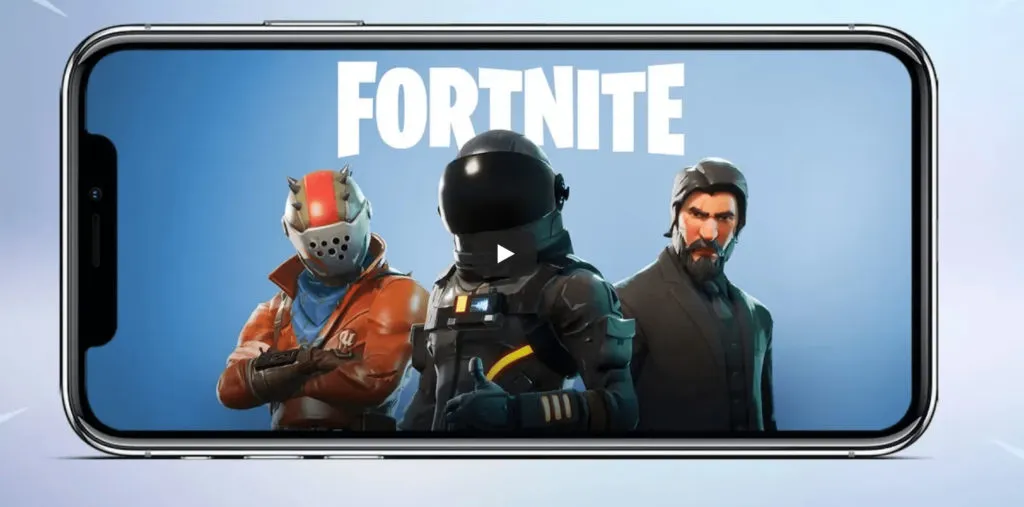
Only a day after Apple’s responses to Epic’s claims, Epic tweeted that Apple was getting ready to terminate the “Sign in with Apple” option while signing into Fortnite. This means that players who never created Epic accounts to play Fortnite and relied on Apple’s sign-in feature will no longer be able to log into the game starting as soon as Sept. 11.
Epic shared a link to a support page that explains how players who have been using Apple’s log-in method can create their new accounts, which would allow them to keep playing once Apple discontinues the feature. Apple will be terminating the feature for all of Epic’s games on the App Store, so even if you don’t play Fortnite, it’d be wise to get an Epic account before Sept. 11 through Epic’s website.
Considering Epic announced it lost over 60-percent of its iOS player base and how its inability to push updates was hurting it significantly, this looks like Apple’s way of rubbing salt into the wound. Both parties are challenging each other to see who will show the slightest indication of backtracking, but neither has shown any signs so far.
13) Apple to continue supporting the “Sign in with Apple” feature on Epic games
The initial news that went live on Sept. 9 claiming Apple would end its supports of the “Sign in with Apple” feature on all of Epic’s products came from Epic itself. The developer even had a support page ready to inform its players what they can do to retain their access to the accounts when Apple would discontinue the sign-in method for Fortnite.
Epic came forward with a new tweet on Sept. 10, saying the expected termination was extended indefinitely. This means all users who use Apple’s login feature will still be able to log into Fortnite and Epic games with no trouble. The developer still advised its users to take necessary precautions and set up an Epic account to keep their user data intact in case the worst happens, however.
The Verge reached out to Apple for a comment on the recent developments. The developer said it wasn’t doing anything to prevent the login feature from working on Fortnite, or any other game developed by Epic. This put Epic at a weird spot since it’s not clear what the plans are of the two tech giants until the antitrust lawsuit goes to trial on Sept. 28.
Apple users are still not able to receive updates for Fortnite or any other Epic game, which is hurting Epic’s player-bases significantly.
14) Apple calls Epic’s Fortnite lawsuit a “marketing campaign” in its latest court filing
Aside from its 65-page response to the case, Apple has been keeping more silent than Epic. Fortnite’s developer had recently informed its fans that Apple was terminating the “Sign in with Apple” function, but later told it would continue while recommending players to still create an Epic account.
Apple broke its silence via its latest court filing on Sept. 17 and described the whole situation as a marketing campaign designed to reinvigorate the decreasing interest in Fortnite. Apple showcased how the Fortnite player-base was declining prior to the lawsuit. Apple claims that the interest in Fortnite had decreased by nearly 70 percent by July 2020 compared to Oct. 2019, in a report by Kotaku.
Apple believes it had nothing to do with the decreasing popularity of the game and considers the recent events as a “pre-planned media blitz surrounding Epic’s decision to breach its agreement with Apple, creating ad campaigns around the effort that continue to this day.”
“If Epic were truly concerned that it would suffer reputational injury from this dispute, it would not be engaging in these elaborate efforts to publicize it,” Apple said. “From all appearances (including the #FreeFortnite campaign), Epic thinks its conduct here will engender goodwill, boost its reputation, and drive users to Fortnite, not the opposite.”
Considering Epic already had a mock ad video ready to go as soon as it was removed from the App Store and it has also taken the lengths to sell #FreeFortnite merch, Apple could be onto something here.
The antitrust lawsuit between the two companies will occur on Sept. 28, with Epic currently backed into a corner since it’s been rapidly losing iOS users due to not being able to update the game to its latest version.
15) Apple removes Epic’s ability to distribute games and patches on Mac

Epic announced that Apple was preventing it from signing games and patches for distribution on Mac, on Sept. 17. The decision prohibits Epic from releasing the new v14.20 update for Fortnite: Save the World, which would fix most of the bugs affecting the overall gameplay experience.
Epic stated that releasing the update under these circumstances would cause new bugs and issues for players on Mac who’d be stuck with the older version of the game. Epic is planning to take down Fortnite: Save the World on Sept. 23, to prevent its Mac users from enduring a “very poor experience.”
The developer will also be issuing refunds to all the players who purchased the Save the World Founder’s or Starter Packs and played the game on macOS between Sept. 17 2019 and Sept. 17, 2020. The bundles were also removed from Save the World effective immediately on macOS after the announcement went live.
Fortnite: Battle Royale will continue to be playable on Mac, but it’ll still be stuck on the game’s v13.40 version. Considering the newest season of Fortnite, Chapter two, season four, has been a giant collaboration between Epic and Marvel, Apple users haven’t been happy about missing out on the fun. Epic has been losing most of its Apple player base, and the developer’s other games currently share the same faith with Fortnite.
16) Epic responds to Apple’s “marketing campaign” accusations, says Apple “cherry-picked” Fortnite stats from Google Trends
On Sept. 17, Apple took the microphone in its feud vs. Epic and accused the developer of running a “marketing campaign” by deliberately violating its ToS. Apple also included a bunch of stats to support its claims, which indicated that Fortnite was rapidly dropping in popularity compared to October 2019.
Apple stated that it believed the company was dragged into this antitrust lawsuit because Epic was out to promote Fortnite. Considering Epic had an ad ready-to-go as soon as it was removed from Apple’s App Store, it strengthened Apple’s hand, but Epic came forward on Sept. 21 to say the data Apple showcased was “cherry-picked.”
Cherry-picking a set of data means only including the bits that would back up your claims. In addition to accusing Apple of doing such a thing, Epic also argued that Apple was a monopolist demanding a 30 percent cut out of all in-game microtransactions.
Epic believes that Apple used a misleading spike from Google Trends that happened in Oct. 2019 which was when the developer held the Black Hole event that marked the end of Chapter one of Fortnite. Epic said its daily active users since that date had actually increased by 39 percent, which is the opposite of what Apple said in its previous statement.
Apple’s latest claims were also accusing Epic of going against PlayStation’s ToS when the company first introduced crossplay between platforms., but Epic described it as a co-run campaign between the developer and Sony.
17) Epic says Fortnite could be wiped off Apple devices as users install the iOS 14 update
Only a few weeks away from the first official court hearing between Epic and Apple, iOS 14 released after an Apple event on Sept. 15. While downloading updates to a mobile device is a relatively straightforward process, things can get a bit messy if you don’t have enough space on your device to store the update files.
Epic warned its users via Twitter that Apple devices could delete Fortnite to create storage space for the new iOS 14 update. Considering Apple removed Fortnite from the App Store, downloading it after iOS 14 isn’t an option for Fortnite fans on mobile devices, meaning their game will be gone for good.
Though it sounds shady at first, this isn’t unusual behavior for iOS. The operating system usually prompts users with a warning that they don’t have enough space for the update and whether they’d like to temporarily uninstall some apps until the update installs. The temporary part doesn’t apply to Fortnite, however, since it isn’t available for iOS users anymore. Players who wish to keep Fortnite on their phones will need to press cancel when the first pop-up appears and manually create enough space by deleting apps on their own.
18) The first hearing of the lawsuit goes through, Apple and Epic may go to trial next year
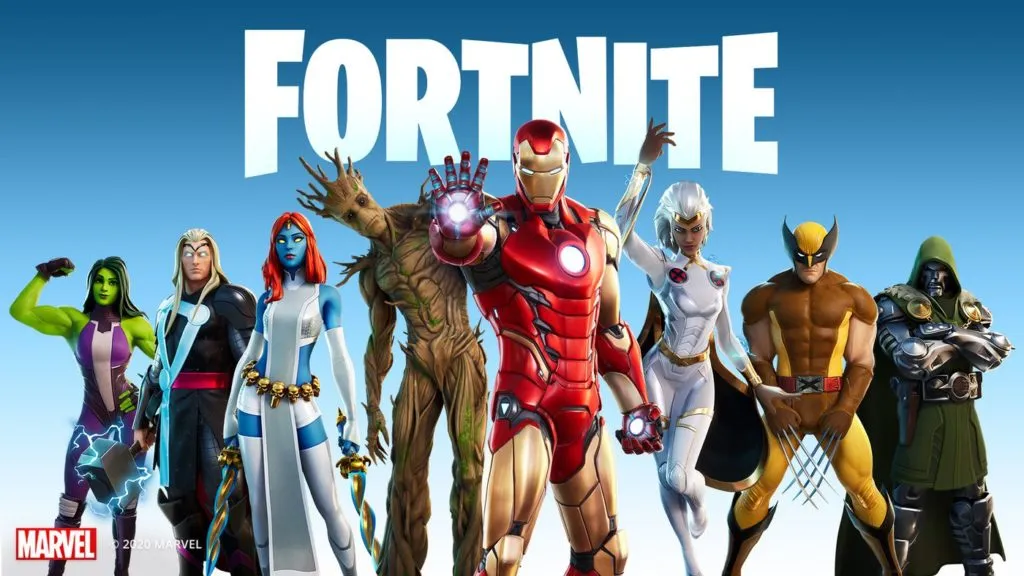
Epic and Apple clashed in a virtual court on Sept. 28. While nothing significant came out of it, that affects the current well-being of Fortnite since Apple’s ban will continue for the foreseeable future.
Judge Yvonne Gonzalez Rogers verified Apple’s claims of Epic circumventing its policies. Rogers pointed out multiple times that Epic wasn’t “forthright” with its actions since it pushed the problematic update while knowing it would be against Apple’s terms of service.
Epic started the debate by arguing how its Apple userbase didn’t have other channels to play the game and Apple cutting them was directly preventing these players’ access to Fortnite. The judge wasn’t entirely convinced, however, since she pointed out there were multiple channels to distribute Fortnite on and all of them were quite accessible.
Apple pointed out that greenlighting Epic’s actions would be a dangerous sign to allow other companies to do the same, which render the company’s terms and integrity useless. Live reports shared by Brian Fung, a tech reporter for CNN, indicated that the judge wasn’t convinced by Epic’s claims and had a somewhat skeptical tone against the developer throughout the entire session.
Rogers made it clear that she considered Epic’s actions as dishonest despite its current public image as heroes and Apple’s lawyer Ted Boutrous accused Epic’s CEO Tim Sweeney of trying to be the pied piper of other developers. Boutrous argued that whatever Epic was trying to pull off would serve as a way of showing how cheating, breaching agreements, and sneaking in software to bypass app reviews would be acceptable behavior.
Even though Epic had a couple of moments where it could potentially defend itself by describing how Apple was a monopolist from the beginning, it’s safe to say that Apple came with its guns blazing to the first trial of the case. While Epic also argued that Apple’s current actions were doing irreplaceable harm to its player base on Apple devices, no judgments were made to change the two companies’ current stance.
The judge added that the two companies would be hearing from her in writing, according to reports from CNET, and recommended a trial by jury that would be held next July.
It looks like Fortnite players on Apple devices will continue to struggle for now since Epic’s hands are still tied for the time being and won’t be able to push any future updates.
19) Apple and Epic court date set for May 3, 2021
One of the most notable takeaways from the first hearing between Apple and Epic on Sept. 28 was the judge’s recommendation of a trial by jury on a later date. The jury deal was dismissed by both parties since they agreed on a bench trial, but Apple and Epic are set to go to trial on May 3, 2021, as of Oct. 7.
The focus of the case is likely to be around Apple and whether the company’s monopolist due to forcing a 30 percent cut for all in-game purchases, according to industry analyst Daniel Ahmad.
Before the two tech giants go head-to-head in a federal court on May 3, 2021, they will need to work through the following schedule.
- Expert discovery cutoff: March 31, 2021
- Dispositive motions to be heard by: None to be filled without conference
- Compliance hearing: April 2 2021
- Joint pretrial conference statement: April 9, 2021
- Pretrial conference: May 3, 2021
While both parties’ hands will likely be tied until the hearing, Epic still needs to pull a rabbit out of a hat since it’s still unable to update Fortnite on iOS devices. There should be at least two more Fortnite seasons occurring until May 2021, meaning Epic may get impatient while watching their iOS players abandon ship.
20) Epic claims that Apple “has no rights the fruits of its labor”
Though a court date was set between Apple and Epic, the feud only settled down for a few weeks. Before the first court hearing, Apple claimed that it would seek damages from Epic due to the breaching of its App Store contract. While Apple was technically in the right and also had its App Store policy behind it, Epic decided not to go down without a fight with its filing on Oct. 24.
Epic’s Oct. filing was filled with counterclaims for unjust enrichment and Apple’s constant interference with app developers’ customers. Epic claimed that it didn’t “steal anything “ from Apple since it couldn’t merely steal from its own creative efforts and products. Epic indicated that what Apple was doing closer to what they were being accused of.
Considering Apple wasn’t forced to bring Fortnite back to its App Store, it’s only natural to see Epic back on the offense. The company’s bleeding users on the iOS side of things since it’s still not able to provide any updates to the players on Apple devices. New filings from Epic will be the key to bringing back Fortnite to the App Store, even it’s for a temporary period until the initial court date between the two.
21) Apple cuts its App Store commission to 15 percent
The whole main reason behind the feud between Epic and Apple was the high commission rates that Apple was asking for purchases through the App Store, and games downloaded through the App Store as well. Epic believed this was an antitrust violation and downright counteractive for indie developers.
Apple announced its plans to roll out an App Store Small Business Program on Jan. 1 where developers that make less than $1 million in a year, can apply for a reduced commission payment on Nov. 18. This is the biggest discount Apple has ever offered for developers, and the fact that it was announced shortly after Epic’s latest filing makes its timing intriguing.
While Apple said nothing about Epic’s Oct. filing, Epic’s CEO Tim Sweeney didn’t take long to reply to Apple’s new policy.
“It’s great news for these small developers, but rather calculated to divide,” Sweeney said. “Give special 15 percent terms to tech titans like Amazon, and to small developers who together account for less than 5 percent of App Store revenue, and hope to maintain the monopoly store and payment service. Since 95 percent of App Store revenue is from larger developers, consumer prices remain inflated by Apple’s 30 percent tax on most digital purchases.”
The news may be great for small developers, but considering they make up a slim majority of Apple’s revenues, this new policy won’t be remotely close to reducing Apple’s profits in any significant way. This recent change will also strengthen Apple’s hand when it comes to proving they aren’t any hurting small businesses, which is a smart move in itself, leading to court on May 3, 2021 versus Epic.
This article will be updated as more events happen and more information becomes available.













Published: Nov 23, 2020 08:05 pm